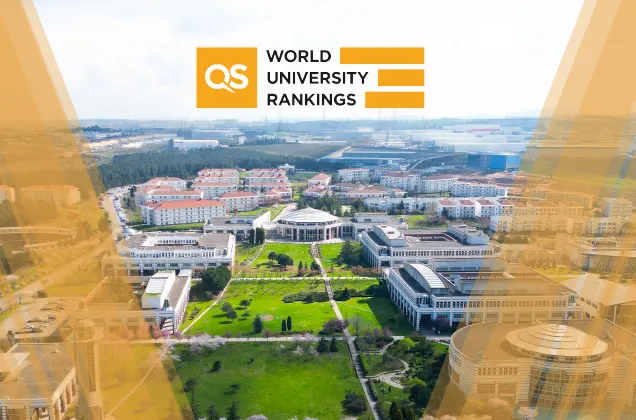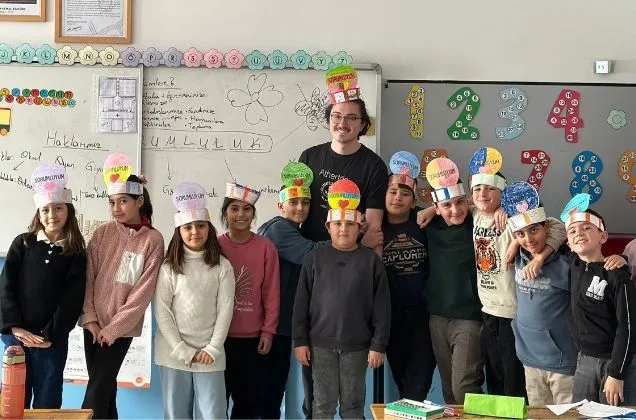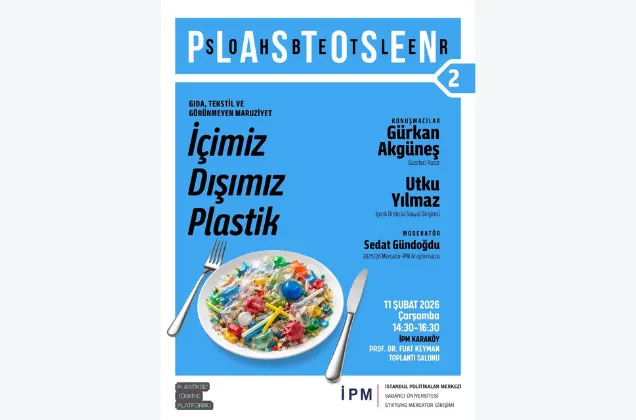15/04/2019
In honor of the late Sakıp Sabancı, Honorary Chairman of the Board of Trustees of Sabancı University, the “Sakıp Sabancı International Research Awards” were presented at a ceremony hosted by the Sakıp Sabancı Family and Sabancı University on Wednesday, April 10, 2019 at the Sabancı Center.
Sabancı University Founding Board of Trustees Chair Güler Sabancı:
• Sakıp Sabancı firmly believed that the society needed to develop in every aspect, and attached great importance to the contribution of social sciences.
• Sakıp Sabancı Research Awards are the first international award given in social sciences in Turkey.
Sakıp Sabancı International Research Awards Jury Prize Winner Joseph S. Nye, Jr:
"Soft power is the ability to get what you want through attraction"
"Soft power can come from a country's culture, ideals or policies"
“Soft power plays a great role in Turkey's future”
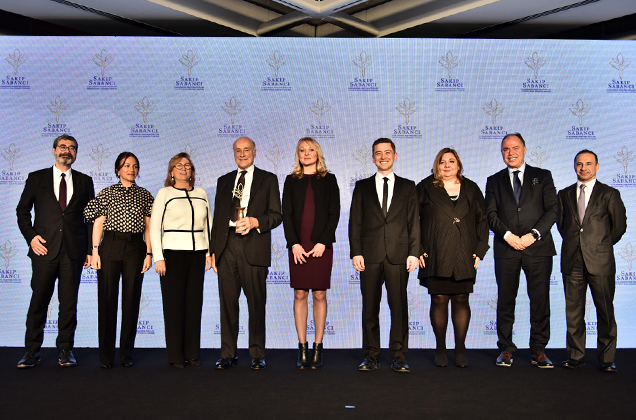
Left to Right : Yusuf Leblebici, Sevil Sabancı, Güler Sabancı, Joseph S. Nye, Jr., Cosette Creamer, Kerim Can Kavaklı, Meltem Müftüler-Baç, Fuat Keyman, Özgür Kıbrıs
In honor of the late Sakıp Sabancı, Honorary Chairman of the Board of Trustees of Sabancı University, the “Sakıp Sabancı International Research Awards” were presented at a ceremony hosted by the Sakıp Sabancı Family and Sabancı University on Wednesday, April 10, 2019 at the Sabancı Center.
"We aimed to raise well-educated students, true global citizens liberated of their prejudices and free in mind, thought and conscience"
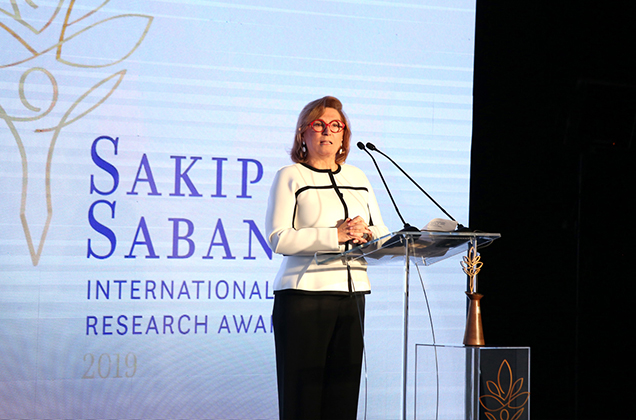
Sabancı University Founding Board of Trustees Chair Güler Sabancı delivered introductory remarks to the event.
Güler Sabancı said that while designing Sabancı University together with Sakıp Sabancı, they aimed to raise well-educated students, true global citizens liberated of their prejudices and free in mind, thought and conscience. She said that they always believed such individuals would make a contribution to humanity, science and society while generating value for life. She continued, "Today, when I look at our graduates all around the world, who make a difference through their achievements, I feel delight and I am sure that Sakıp Sabancı would have been delighted as well."
“We wanted Sabancı University to be among the best not just in Turkey, but across the world”
Güler Sabancı said, “We are proud that our university represents Turkey on international rankings through great achievements."
“The Sakıp Sabancı Turkish Studies Center at Columbia University is a great symbol of Sakıp Sabancı’s vision and the values he held dear"
Güler Sabancı said that Sakıp Sabancı wanted everything done to have international outreach and impact, and specifically directed people to cooperate with the best in the world when doing things. Sabancı stated: “The Sakıp Sabancı Turkish Studies Center at Columbia University was established with the generous and bold efforts of Dr.h.c. Dilek Sabancı and Sevil Sabancı. I believe that this Center is a great symbol of Sakıp Sabancı’s vision and the values he held dear.”
Turkey's first international award in social sciences
Güler Sabancı said that the awards were world-class in every way from jury panel to processes and participants, which confirmed her belief that the awards lived up to the memory of Sakıp Sabancı, and expressed her hope that the Sakıp Sabancı International Research Awards would continue to expand the horizons of researchers in the future. Sabancı declared the theme for the 2020 awards to be “Economics and the Future of Turkey: Sustainable Environment, Transportation and Energy”.
Jury Prize given to Joseph S. Nye, Jr.
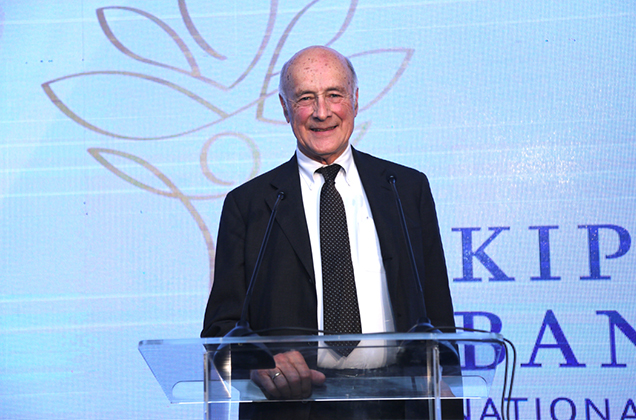
Joseph S. Nye, Jr. is one of the leading international relations theorists of the world and a Harvard University Distinguished Service Professor Emeritus. He has served as Assistant Secretary of Defense for International Security Affairs and Chair of the National Intelligence Council under the Clinton Administration (1993-2001).
"Soft power, which is the ability to get what you want through attraction, can come from a country's culture, ideals or policies"
Joseph S. Nye, Jr. spoke: “When we talk about power, we expect others to do what we want them to do. I thought that it was more important to achieve this by making our idea more attractive, by developing a mutual relationship with others. Most of us do this already. So I named it soft power. Soft power is what one needs to make an effective foreign policy. The art of diplomacy is to get agreements. It is underpinned by the idea to sway the preferences of others rather than using force and sanctions to be influential in world politics. Soft power, which is the ability to get what you want through attraction, rather than coercion or payment, can come from a country's culture, ideals or policies."
Nye continued, “I believe that soft power will play a great role in Turkey's future. It is important that Turkey goes back to the soft power approach, and the use of soft power when planning its future. I think that the culture and universities in Turkey will contribute greatly to the country's soft power. Sabancı University and others make great efforts to preserve academic freedom and intellectual integrity. These will add to Turkey's soft power in the future. By utilizing its soft power, Turkey can achieve great things and create tremendous impact. I am confident that the future holds great things for Turkey."
Essay Awards to three young researchers
The three equally-weighted Essay Awards were given to:
• Cosette D. Creamer from University of Minnesota with "Judicial Responsiveness in the World Trade Organization"
• Kerim Can Kavaklı from Bocconi University with "Does the Rise of China Weaken Global Governance? Evidence from the Anti-Trafficking Regime"
• Moria Paz from Georgetown University with "A World of Walls".
Sabancı University Faculty of Arts and Social Sciences member Meltem Müftüler-Baç, the president of this year's jury panel, explained the reasoning behind the jury's selection.
After the speeches, Joseph S. Nye, Jr. received the Jury Prize from Sabancı University Founding Board of Trustees Chair Güler Sabancı, Sabancı University President Yusuf Leblebici, and this year's Jury Chair Meltem Müftüler-Baç. Winners of the Essay Awards received their prizes from Sabancı University Board of Trustees Member Sevil Sabancı and Sabancı University Vice President and Istanbul Policy Center Director Fuat Keyman.
More than 390 submissions from 31 countries over 14 years
Sakıp Sabancı International Research Awards were established 14 years ago to honor the will of the late Sakıp Sabancı, and are given by Sabancı University in the history, economy and sociology of Turkey. The award program is led by the Sabancı University Faculty of Arts and Social Sciences and the Istanbul Policy Center. Submissions are reviewed by an international panel of independent jury members. In the last 14 years, Sakıp Sabancı International Research Awards have been given in subjects ranging from Turkey's economy to foreign policy, history, and social dynamics. More than 390 submissions were received from 31 countries for the 14 Awards given so far.
Jury Panel
The president of this year's Jury Panel was Sabancı University Faculty of Arts and Social Sciences member Meltem Müftüler-Baç.
Jury members were Sabancı University Vice President and Istanbul Policy Center Director Fuat Keyman, Sabancı University FASS Dean Özgür Kıbrıs, Sabancı University FASS Faculty Member Ayşe Kadıoğlu, Brookings Institution Vicre President and Sabancı University International Board of Overseers Member Kemal Derviş, School of Advanced International Studies, Johns Hopkins University faculty member Erik Jones, and Wright University of Pennsylvania faculty member William Burke.
About Joseph S. Nye, Jr.
Joseph S. Nye, Jr. is University Distinguished Service Professor Emeritus and former Dean of Harvard’s Kennedy School of Government. He received his bachelor's degree summa cum laude from Princeton University, won a Rhodes Scholarship to Oxford, and earned a Ph.D. in political science from Harvard. He has served as Assistant Secretary of Defense for International Security Affairs, Chair of the National Intelligence Council, and a Deputy Under Secretary of State. His most recent books include The Powers to Lead, The Future of Power, and Presidential Leadership and the Creation of the American Era. He is a fellow of the American Academy of Arts and Sciences, the British Academy, and the American Academy of Diplomacy. In a recent survey of international relations scholars, he was ranked as the most influential scholar on American foreign policy, and in 2011, Foreign Policy named him one of the top 100 Global Thinkers. In 2014, Japan awarded him the Order of the Rising Sun.


